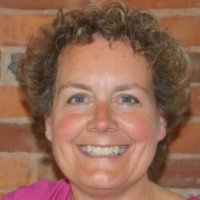
Shalom House provides community-based support services and safe, affordable housing for people with serious mental illness. When it opened in 1972, the organization operated one halfway house in Portland. Today, it offers nearly two-dozen housing choices, from independent apartments to group homes and rooming houses throughout southern Maine.
Every year, Shalom House presents two Hope Awards to people who are making a difference in the lives of people living with mental illness. One of the Hope Awards is the Joseph Brannigan Community Excellence Award, named after former, longtime executive director Joseph Brannigan and given to an individual or organization that contributes to the community by being socially aware and sensitive to the housing and support needs of people living with mental illness. This year’s recipient is Cheryl Ramsay.
Why Shalom House chose Cheryl Ramsay for an award
Cheryl Ramsay, a family member and advocate, will receive the 2013 Joseph Brannigan Award for her willingness to share the story of her two sons. Both face the challenges of a mental health diagnosis, but each has taken a different path in hopes of recovery.
“Cheryl’s willingness to share her own family’s journey, as well as use her voice to advocate and educate, is awe-inspiring,” says Mary Haynes-Rodgers, Shalom House’s current executive director. “Cheryl is a role model for how we can take our own experiences and use them to make the world a better place for all. Her passion to fight stigma and support individuals on their journey to recovery as well as support family members continues to offer hope to all who hear her message. Her actions exemplify what the Joseph Brannigan Community Excellence Award was created to honor.”
A conversation with Cheryl about mental illness
Cheryl Ramsay welcomes and encourages conversations about her sons’ mental illnesses. “There is such a stigma with mental illness,” she says. “We need to start having the conversations and open and honest dialogues because it’s that very thing that stops people from getting the services and treatment they need. Sometimes they don’t even know they’re out there and that’s such a shame — for the person with a diagnosis and the family members.”
Cheryl has three children — a daughter and identical twin sons. Each of her sons, now in their late 20s, has a mental illness.One son struggles with substance abuse and while he also exhibits signs of mental illness, has never been officially diagnosed. Cheryl says, “His journey presently includes the criminal justice system, like so many who face the challenges of a dual diagnosis.”
Her other son, Scott, has been diagnosed with schizophrenia and lives in a group home run by Shalom House.
In the story of her sons, the chapters on mental illness began when they were 13 years old and started experimenting with substances. By the time he was 15, Scott was showing signs of distress. “We just kept telling him to stop using the substances and you’ll be fine, not really knowing what we were heading into,” Cheryl explains. “My husband is a police officer, so he certainly had his own connection with people who have a mental illness, but I think it’s a totally different way of looking at things when it’s happening in your own family. I had no experience with mental illness so I didn’t know what I was looking at either.”
In his sophomore year of high school, Scott began cutting himself and was hospitalized. Over the next few years, the cutting got worse. “He probably had about nine hospitalizations and we probably made 20 trips to the emergency room,” describes Cheryl. “In the meantime, he was seeing a counselor. We were doing all the right things, but he continued to get worse.”
When he was a senior, he attended a program in Massachusetts and became substance-free. “That’s when his mental illness really took hold, says Cheryl. “He had actually been self-medicating and that’s when the delusions and auditory hallucinations — all those kinds of things — really started showing themselves.”
Family members began to educate themselves about mental illness and took a Family to Family class offered by the Maine Chapter of the National Alliance on Mental Illness (NAMI). Cheryl now teaches the class and works full-time for NAMI as its Walk Manager.
The family also found out about Shalom House. When he returned home from Massachusetts, Scott participated in Shalom’s transitional program and moved into one of its houses, where he lived for a couple of years. As his mental illness progressed, he would be hospitalized two more times, the last time in 2010, at Riverview for one year. Scott now lives in a group home run by Shalom House, where he has his own bedroom but receives 24/7 staff support for everything from taking his medications to being prompted to take a shower.
Even with medication, Scott no longer engages with his family. “Our engagement has come to probably 10 seconds,” says Cheryl. “Literally. If you were to see him, he paces back and forth. He’s always talking outwardly, always having an ongoing dialogue with whatever stimulation is happening. He was an engaging young adult before his illness. It’s been heartbreaking.”
Letting other people, no matter how well-qualified, take over the care of her son was also heartbreaking says Cheryl, but she believes it was the right decision. “What Shalom House is doing for my son and our family is huge because they’re taking care of him, something that I know I can’t do when I step outside of the situation. It means that Scott has a safe and supportive environment to live in and I’m really grateful.”
As for her other son, Cheryl says she doesn’t know what his future holds. What helps her most is being able to talk openly about how her family has been affected by mental illness. “I think it’s important to have the conversations. Through sharing my story, people have come up to me for the first time and said, ‘I had no idea.’ It makes sharing the story worthwhile because it gets somebody else talking about it and getting outside of their pain and seeking help and resources and support.”
Congratulations to Cheryl Ramsay, for having the courage to speak openly about her family’s experiences with mental illness and helping other people get the help they need.
Shalom House will present its second Hope Award, the Johnson & Korda Innovation Award, to Mary Allen Lindemann and Alan Spear, who own Coffee by Design. I’ll write about their contributions later this week.


Leave A Comment